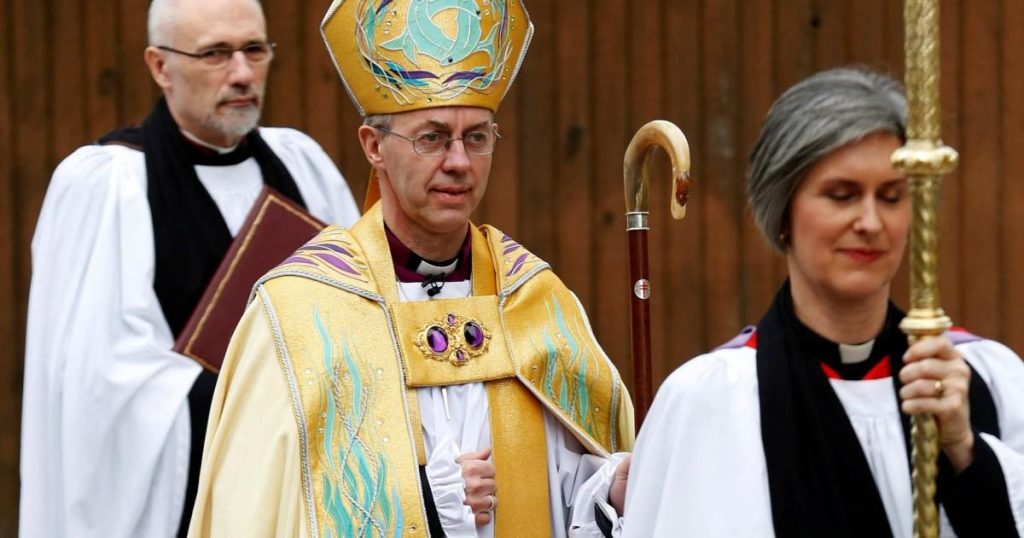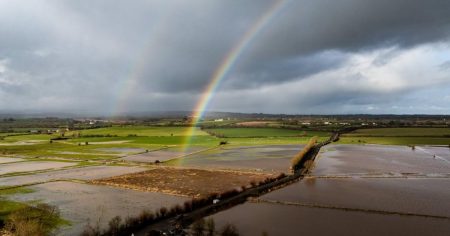The Archbishop of Canterbury, Justin Welby, vacated his position at midnight on Monday, triggering a significant transition within the Church of England. His departure stems from criticisms regarding his handling of a major church abuse scandal involving John Smyth, a Christian camp leader accused of abusing over a hundred boys and young men. An independent review concluded that Welby could have brought Smyth to justice earlier, leading to calls for accountability and ultimately, Welby’s resignation. The search for the 106th Archbishop of Canterbury now commences, with a diverse pool of potential candidates vying for the esteemed position. This transition presents a pivotal moment for the Church of England, as it grapples with internal challenges and seeks new leadership to navigate complex issues in contemporary society.
The selection process, overseen by the Crown Nominations Commission (CNC), is shrouded in secrecy. Led by Lord Evans of Weardale, a former British spy chief, the CNC will solicit nominations, interview candidates, and conduct a series of secret ballots to determine Welby’s successor. The commission’s deliberations are expected to continue throughout the summer and into the autumn. Among the prominent contenders are several individuals who represent a notable shift in the traditional demographics of church leadership, including women and individuals from diverse ethnic and cultural backgrounds. This potential for change underscores the evolving landscape of the Church of England and its efforts to embrace greater inclusivity.
Dame Sarah Mullally, the current Bishop of London and a former chief nursing officer, stands as a leading candidate. Mullally’s appointment as Bishop of London in 2018 marked a significant milestone, as she became the first woman to hold the position. Should she be chosen as the next Archbishop of Canterbury, she would again break barriers, becoming the first woman to lead the Church of England. Her extensive experience in healthcare and her prior leadership roles within the church suggest a blend of practical experience and spiritual guidance. Meanwhile, Bishop Guli Francis-Dehqani of Chelmsford offers another compelling narrative. As a refugee from Iran following the Islamic Revolution, Francis-Dehqani brings a unique perspective shaped by personal hardship and resilience. Her outspoken advocacy on social justice issues, particularly regarding conflict in the Middle East, signals a potential for a more vocal and activist approach within the church’s leadership.
Among the other prominent contenders are Bishop Graham Usher of Norwich, a noted environmentalist and beekeeper, Bishop Michael Beasley of Bath and Wells, a former epidemiologist who played a crucial role in the Church of England’s COVID-19 response, and Bishop Martyn Snow of Leicester, who has been actively involved in addressing issues of racism and prejudice within the church. Each candidate brings a unique set of experiences and perspectives, reflecting the diverse challenges facing the Church of England today, ranging from environmental concerns to social justice issues and internal reform. The selection of the next Archbishop will inevitably shape the church’s approach to these challenges in the coming years.
Bishop Rose Hudson-Wilkin of Dover, the first black female bishop in the Church of England, also represents a potential historic appointment. Her extensive experience as a chaplain to Queen Elizabeth II and the Speaker of the House of Commons underscores her deep engagement with both the spiritual and political landscape. Similarly, Bishop Helen-Ann Hartley of Newcastle has gained recognition for her outspoken criticism of the church’s handling of safeguarding failures, calling for greater accountability and transparency. Her willingness to challenge established norms within the church hierarchy suggests a potential for significant internal reform under her leadership.
The selection of the next Archbishop of Canterbury carries immense weight, not only for the Church of England but also for the global Anglican Communion. The next Archbishop will inherit a complex legacy, marked by both historic traditions and contemporary challenges. The chosen leader will be tasked with navigating these complexities, addressing internal divisions, and providing spiritual guidance to millions of Anglicans worldwide. The appointment represents a critical juncture for the Church of England, an opportunity to both reflect on its past and chart a course for the future. The months-long selection process promises to be a period of intense scrutiny and anticipation, as the church awaits the announcement of its new spiritual leader.











